Quebec, recognized for its dynamic R&D ecosystem, offers various grants and financial aids designed to support businesses in their research and development projects. These measures aim to stimulate innovation, encourage collaboration between businesses and research institutions, and enhance competitiveness on the global market.
Introduction to R&D Grants in Quebec and Their Impact on Quebec Businesses
R&D grants, provided by the Government of Quebec and supported by initiatives at the federal level in Canada, play a crucial role in supplying Quebec businesses and those across Canada with the essential financial resources to explore new ideas, innovate in their products and processes, and make a significant contribution to the knowledge economy. These financial aids, by reducing the financial risks associated with R&D activities, allow not only businesses in Montreal but also those spread throughout Quebec to remain at the forefront of innovation, thereby facilitating their transformation and contribution to social and economic progress. By leveraging these grants, businesses can secure the necessary funding to stay competitive and proactive in the innovation landscape.
Contribution to Innovation and Competitiveness
Quebec's R&D support programs, by encouraging businesses to engage in innovative projects, have an immediate positive impact on their competitiveness and ability to transform. These initiatives promote the development of cutting-edge technologies and support scientific research, thus positioning Quebec and Canada as leaders in innovation. The successful commercialization of these innovations plays a key role in consolidating this position, while also contributing to societal advancement through significant technological and social breakthroughs.
Financial Support for R&D Projects
Through a variety of programs and tax credits, the Government of Quebec, in collaboration with federal entities in Canada, provides significant financial support to businesses that incur R&D expenses. The Scientific Research and Experimental Development (SR&ED) tax credit program, for example, enables Canadian businesses to obtain a tax credit of up to 35% of eligible expenses, thus promoting the conduct of research and development activities with the aim of commercializing new technologies. This funding is essential in enabling businesses of all sizes, from Montreal and elsewhere in Quebec, to turn their innovative ideas into commercial successes, contributing to Canada's economic and social progress.
Encouraging the Commercialization of Technologies
In addition to R&D support, Quebec offers aids aimed at facilitating the commercialization of technological innovations. These initiatives include loans, loan guarantees, and intellectual property advice, thereby helping businesses transform their discoveries into marketable products or services.

Call for collaborative and structuring innovation projects in Quebec's strategic sectors
Gouvernement du Québec- Maximum amount : 1,000,000 $
- Up to 35% of project cost
- Utilities
- Manufacturing
- Transportation and warehousing
- Information and cultural industries

Stade V
Québec Tech- Up to 65% of project cost
- All industries

Biofood Innovation Program Component 2 – Applied research, experimental development and technological adaptation
Ministry of Agriculture, Fisheries and Food (MAPAQ)- From $25,000 to $254,000
- Up to 90% of project cost
- Agriculture, forestry, fishing and hunting
- Manufacturing

International Climate Cooperation Program (ICCP)
Environnement Québec (MELCC)- No Condition
- Professional, scientific and technical services
- Educational services
- Other services (except public administration)
- Public administration

Financial support to assess your energy use Hydro Quebec
Hydro-Québec- Maximum amount : 50,000 $
- Up to 40% of project cost
- Utilities
- Construction
- Manufacturing
- Wholesale trade

Aboriginal Aquatic Resource And Oceans Management (AAROM) Program
Fisheries and Oceans Canada (DFO)- No Condition
- Agriculture, forestry, fishing and hunting
- Professional, scientific and technical services
- Educational services

Call for innovation projects in artificial intelligence and quantum technologies – collaborative industrial research and support for entrepreneurship
Gouvernement du Québec- Maximum amount : 1,500,000 $
- Up to 35% of project cost
- Agriculture, forestry, fishing and hunting
- Mining, quarrying, and oil and gas extraction
- Utilities
- Construction

Official Languages Support Programs
Canadian Heritage- No Condition
- Information and cultural industries
- Educational services
- Arts, entertainment and recreation
- Other services (except public administration)

FTQ — Bioenergy
Solidarity Funds (FTQ)- No Condition
- Agriculture, forestry, fishing and hunting
- Utilities
- Manufacturing
- Administrative and support, waste management and remediation services

Zú program — Incubation
Zú- No Condition
- Information and cultural industries
- Arts, entertainment and recreation

Advanced Manufacturing program
National Research Council Canada (NRC)- No Condition
- Manufacturing
- Transportation and warehousing

Innovation continuum
Axelys- No Condition
- Professional, scientific and technical services
- Educational services

CRIAQ International
Consortium for Research and Innovation in Aerospace in Quebec (CRIAQ)- Maximum amount : 1,500,000 $
- Up to 40% of project cost
- Manufacturing
- Professional, scientific and technical services

Scientific and Innovative Venture Program (SIVP)
Québec Research Fund- Maximum amount : 50,000 $
- Professional, scientific and technical services
- Educational services
- Health care and social assistance
- Arts, entertainment and recreation

Aero Montreal — Eco-Responsibility
Aéro Montreal- No Condition
- Manufacturing

Valorization in RNA
Axelys- No Condition
- Professional, scientific and technical services
- Educational services
- Health care and social assistance

PROMPT — Artificial intelligence
PROMPT- Maximum amount : 1,500,000 $
- Up to 35% of project cost
- Information and cultural industries
- Professional, scientific and technical services

Quebec Strategic Electric Supply Platform (PASQÉ)
Quebec Electrical Industry Association (AIEQ)- No Condition
- Utilities
- Manufacturing

PROMPT — Quantum Technologies
PROMPT- Maximum amount : 1,500,000 $
- Up to 35% of project cost
- Professional, scientific and technical services

PROMPT — Collaborative Innovation
PROMPT- Maximum amount : 1,500,000 $
- Up to 40% of project cost
- Manufacturing
- Information and cultural industries
- Professional, scientific and technical services
- Educational services

PROMPT — GHG Reduction – SME Component
PROMPT- Maximum amount : 450,000 $
- Up to 50% of project cost
- Manufacturing
- Professional, scientific and technical services

The Quantum Technologies innovation funding program
PROMPT- Maximum amount : 1,500,000 $
- Up to 35% of project cost
- Professional, scientific and technical services

PSO-Biofood II – 144th call for projects
Consortium de recherche et d'innovations en bioprocédés industriels au Québec (CRIBIQ)- Maximum amount : 1,500,000 $
- Up to 27% of project cost
- Agriculture, forestry, fishing and hunting
- Manufacturing
- Professional, scientific and technical services

OPZI – Innovation in optics and photonics
Optech- Up to 40% of project cost
- Manufacturing
- Professional, scientific and technical services

CQRDA — PSO-v2b
Centre québécois de recherche et de développement de l’aluminium (CQRDA)- Maximum amount : 1,500,000 $
- Up to 40% of project cost
- Manufacturing
Discover how much grant funding is available for your business
Subsidize your projects with grants!
Use our free grant estimator to quickly identify the available grant amounts for which your company may be eligible.

MTRIC — INNOV-R
Metal Transformation Research and Innovation Consortium (MTRIC)- Maximum amount : 1,500,000 $
- Up to 40% of project cost
- Mining, quarrying, and oil and gas extraction
- Manufacturing

Genomics Innovation to Commercialization Program
Génome Québec- From $300,000 to $900,000
- Manufacturing
- Professional, scientific and technical services
- Educational services
- Health care and social assistance

Accès jardins
City of Montreal (MTL)- No Condition
- Real estate and rental and leasing
- Educational services
- Arts, entertainment and recreation
- Other services (except public administration)

Game Changer Pitch Competition
Decentralised Energy Canada (DEC)- No Condition
- Utilities
- Information and cultural industries
- Professional, scientific and technical services

MRC La Matanie — Grant and Sponsorship Program
MRC La Matanie- Maximum amount : 250,000 $
- Retail trade
- Arts, entertainment and recreation
- Accommodation and food services
- Other services (except public administration)

Genomics integration program – Agriculture and biofood, forestry and environment
Génome Québec- From $50,000 to $150,000
- Agriculture, forestry, fishing and hunting
- Mining, quarrying, and oil and gas extraction
- Utilities
- Professional, scientific and technical services

Tourism Innovation Program — Stream 3 - Networking with regional innovation organisations
MT Lab- No Condition
- Information and cultural industries
- Arts, entertainment and recreation
- Accommodation and food services

PROMPT — GHG reduction – Academic component
PROMPT- Maximum amount : 1,500,000 $
- Up to 50% of project cost
- Utilities
- Manufacturing
- Professional, scientific and technical services
- Educational services

CQRDA — PSO-International
Centre québécois de recherche et de développement de l’aluminium (CQRDA)- Maximum amount : 1,500,000 $
- Up to 50% of project cost
- Manufacturing
- Professional, scientific and technical services
- Educational services
- Health care and social assistance

Call for artists - creating artworks with residents of Villeray
City of Montreal (MTL)- No Condition
- Arts, entertainment and recreation

MRC Arthabaska — Futurpreneur Canada
MRC Arthabaska- Maximum amount : 60,000 $
- All industries

CMF-Quebecor — Fund Export Assistance Program Partnership
Canada Media Fund (CMF)- Maximum amount : 300,000 $
- Up to 40% of project cost
- Information and cultural industries

PRIMA — SI2TEC – Feasibility Studies
Advanced Materials Research and Innovation Hub (PRIMA)- Maximum amount : 75,000 $
- Up to 50% of project cost
- Manufacturing
- Professional, scientific and technical services
- Administrative and support, waste management and remediation services

Biofood Innovation Program Component 4 – Financial support for innovation partnership initiatives
Ministry of Agriculture, Fisheries and Food (MAPAQ)- From $50,000 to $901,700
- Up to 60% of project cost
- Agriculture, forestry, fishing and hunting
- Professional, scientific and technical services
- Educational services

Collège de Maisonneuve
Collège de Maisonneuve- No Condition
- All industries

Advisory Services Program — Component 2 – Support for the dissemination of information and business co-development activities
Gouvernement du Québec- Maximum amount : 5,000 $
- Agriculture, forestry, fishing and hunting
- Manufacturing
- Educational services

Centre de recherche université Laval Robert-Giffard
Centre de recherche université Laval Robert-Giffard- No Condition
- All industries

The Research Institute of the McGill University Health Centre
Research Institute of the McGill University Health Centre (RI-MUHC)- No Condition
- All industries

PSO – Organic food
Consortium de recherche et d'innovations en bioprocédés industriels au Québec (CRIBIQ)- Maximum amount : 500,000 $
- Up to 27% of project cost
- Agriculture, forestry, fishing and hunting
- Manufacturing
- Professional, scientific and technical services

Université du Québec à Trois-Rivières
Université du Québec à Trois-Rivières (UQTR)- No Condition
- All industries

Aero Montreal — MACH FAB 4.0
Aéro Montreal- No Condition
- Manufacturing
- Transportation and warehousing
- Professional, scientific and technical services

True North Treasure Initiative – Labrador Trough
Government of Canada- No Condition
- Agriculture, forestry, fishing and hunting
- Mining, quarrying, and oil and gas extraction
- Utilities

Call for projects for digital cultural development in the Canadian Francophonie
Gouvernement du Québec- Maximum amount : 25,000 $
- Up to 75% of project cost
- Information and cultural industries
- Educational services
- Arts, entertainment and recreation

NRC — Microbial fermentation pilot plant facility research facility
National Research Council Canada (NRC)- No Condition
- All industries

Université du Québec en Abitibi-Témiscamingue
Université du Québec en Abitibi-Témiscamingue (UQAT)- No Condition
- All industries
Access over 4000 different funding opportunities
Try the helloDarwin platform today and find programs that fit your needs
The helloDarwin application makes it easy to unlock grants so your business can grow faster—with less hassle and more impact.

Humami Center — A structured approach to innovation and commercialization based on the specific needs of institutions
Humami Center- No Condition
- Agriculture, forestry, fishing and hunting
- Manufacturing
- Wholesale trade
- Retail trade

Institut national de la recherche scientifique
Institut national de la recherche scientifique (INRS)- No Condition
- All industries
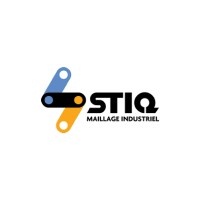
Podium Mines
Sous-traitance industrielle Québec (STIQ)- From $20,000 to $50,000
- Mining, quarrying, and oil and gas extraction
- Manufacturing

Relève Alimentaire Québec Award
Initia Foundation- From $5,000 to $10,000
- Up to 60% of project cost
- Manufacturing
- Accommodation and food services

Cégep André-Laurendeau
Cégep André-Laurendeau- No Condition
- All industries

NRC — Aluminium Technology Centre
National Research Council Canada (NRC)- No Condition
- Manufacturing
- Transportation and warehousing
- Professional, scientific and technical services

Synchronex
CCTT Network - Synchronex- No Condition
- Agriculture, forestry, fishing and hunting
- Manufacturing
- Transportation and warehousing
- Professional, scientific and technical services

PANAM recognition program
City of Montreal (MTL)- No Condition
- Educational services
- Health care and social assistance
- Arts, entertainment and recreation

Université Sainte-Anne
Université Sainte-Anne- No Condition
- All industries

Cégep Edouard-Montpetit
Cégep Edouard-Montpetit- No Condition
- All industries

PISAQ – Stream 2
Gouvernement du Québec- From $2,000 to $30,000
- Up to 80% of project cost
- Agriculture, forestry, fishing and hunting
- Educational services
- Health care and social assistance

Social economy support program (PSES) – Stream 1: Specialized support for social economy enterprises
Social Economy Cluster — Central Quebec- Maximum amount : 300,000 $
- Up to 80% of project cost
- Other services (except public administration)
- Public administration

MEDTEQ+ — Impact
Consortium de recherche et d’innovation en technologies médicales du Québec- Maximum amount : 1,500,000 $
- Up to 40% of project cost
- Professional, scientific and technical services
- Educational services
- Health care and social assistance

Cégep de Lévis
Cégep de Lévis- No Condition
- All industries

Université du Québec à Montréal
Université du Québec à Montréal (UQAM)- No Condition
- All industries

Hôpital Maisonneuve-Rosemont
Hôpital Maisonneuve-Rosemont (HMR)- No Condition
- All industries

Université de Sherbrooke
Université de Sherbrooke- No Condition
- All industries

Université de Montréal
Université de Montréal- No Condition
- All industries

Douglas College
Douglas College- No Condition
- All industries

Centre hospitalier de l'université de Montréal
Centre hospitalier de l'université de Montréal (CHUM)- No Condition
- All industries

Quantum Quebec
Ministère de l'économie, de l'innovation et de l'énergie du Québec (MEIE)- No Condition
- Manufacturing
- Information and cultural industries
- Professional, scientific and technical services
- Educational services

Export 4.0 program — Advanced and Intelligent Technologies
Excellence industrielle Saint-Laurent- No Condition
- Manufacturing
- Information and cultural industries
- Professional, scientific and technical services
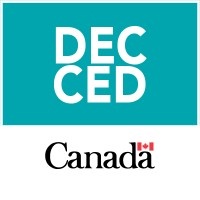
Quebec Economic Development Program (QEDP)
Canada Economic Development for Quebec Regions (CED)- Up to 50% of project cost
- Manufacturing
- Professional, scientific and technical services
- Arts, entertainment and recreation
- Accommodation and food services

CMF-Quebecor — Fund Intellectual Properties Intended for International Markets Production Support Program
Canada Media Fund (CMF)- Maximum amount : 300,000 $
- Up to 6% of project cost
- Information and cultural industries

NRC — Aerospace Manufacturing Technologies Centre
National Research Council Canada (NRC)- No Condition
- Manufacturing
- Transportation and warehousing
To be eligible for R&D grants, companies, including non-profit organizations (NPOs), must be based in Quebec and actively involved in research and development projects.

Arts et lettres de Montréal - Territorial partnership - Ecoresponsibility and sharing
Conseil des arts et des lettres du Québec (CALQ)- Maximum amount : 30,000 $
- Up to 80% of project cost
- Information and cultural industries
- Arts, entertainment and recreation

Québec Research Fund - Health Sector (FRQS)
Québec Research Fund- No Condition
- Professional, scientific and technical services
- Educational services
- Health care and social assistance

NRC — Cell Culture Pilot Plant
National Research Council Canada (NRC)- No Condition
- Manufacturing
- Professional, scientific and technical services
- Health care and social assistance

MTRIC — Start Program
Metal Transformation Research and Innovation Consortium (MTRIC)- Maximum amount : 10,000 $
- Up to 70% of project cost
- Manufacturing

CQRDA — PARTENAR-IA — Academic
Centre québécois de recherche et de développement de l’aluminium (CQRDA)- Maximum amount : 1,500,000 $
- Up to 40% of project cost
- Manufacturing
- Professional, scientific and technical services

Water Incubation Program
2 Degrés- No Condition
- Utilities

Quebec Industrial Research Centre — CRIQ
Investissement Québec (IQ)- No Condition
- Agriculture, forestry, fishing and hunting
- Manufacturing

Grant financing for ICT research partnerships
PROMPT- Maximum amount : 1,500,000 $
- Up to 80% of project cost
- Information and cultural industries
- Professional, scientific and technical services

Montreal Children's Hospital
Montreal Children's Hospital- No Condition
- All industries

Polytechnique Montréal
Polytechnique Montréal- No Condition
- All industries

HEC Montréal
HEC Montréal- No Condition
- All industries

Centre hospitalier universitaire Sainte-Justine
Centre hospitalier universitaire Sainte-Justine- No Condition
- All industries

Centre de recherche Institut universitaire en santé mentale de Montréal
Centre de recherche Institut universitaire en santé mentale de Montréal (IUSMM)- No Condition
- All industries
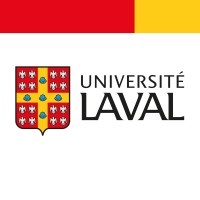
Université Laval
Université Laval- No Condition
- All industries

Cégep de l'Outaouais
Cégep de l'Outaouais- No Condition
- All industries

Montreal Heart Institute
Montreal Heart Institute (MHI)- No Condition
- All industries
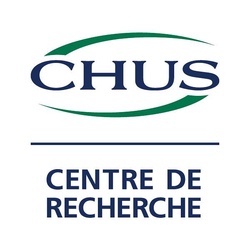
Centre de recherche du Centre hospitalier universitaire de Sherbrooke
Centre de recherche du Centre hospitalier universitaire de Sherbrooke (CRCHUS)- No Condition
- All industries

Cégep de la Gaspésie et des Îles
Cégep de la Gaspésie et des Îles- No Condition
- All industries
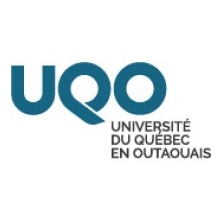
Université du Québec en Outaouais
Université du Québec en Outaouais (UQO)- No Condition
- All industries

Institut universitaire de cardiologie et de pneumologie de Québec - U Laval
Institut universitaire de cardiologie et de pneumologie de Québec - U Laval (IUCPQ)- No Condition
- All industries

Montreal General Hospital
Montreal General Hospital (MGH)- No Condition
- All industries

Cégep de Victoriaville
Cégep de Victoriaville- No Condition
- All industries

Cégep de Saint-Laurent
Cégep de Saint-Laurent- No Condition
- All industries

Royal Victoria Hospital
McGill University Health Centre (MUHC)- No Condition
- All industries

Cégep de l'Abitibi-Témiscamingue
Cégep de l'Abitibi-Témiscamingue- No Condition
- All industries

Montreal Neurological Institute-Hospital
Montreal Neurological Institute-Hospital (The Neuro)- No Condition
- All industries
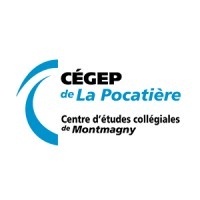
Cégep de La Pocatière
Cégep de La Pocatière- No Condition
- All industries

Jewish General Hospital
Jewish General Hospital (JGH)- No Condition
- All industries
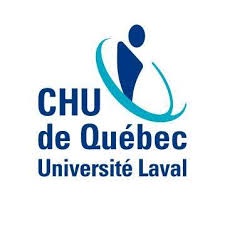
Hôpital du Saint-Sacrement
Hôpital du Saint-Sacrement- No Condition
- All industries

Cégep de Trois-Rivières
Cégep de Trois-Rivières- No Condition
- All industries

Université du Québec à Rimouski
Université du Québec à Rimouski (UQAR)- No Condition
- All industries

McGill University
McGill University- No Condition
- All industries

PROMPT — PARTENAR-IA
PROMPT- Maximum amount : 1,500,000 $
- Up to 50% of project cost
- Professional, scientific and technical services
- Educational services
- Health care and social assistance

Support Program for Research and Innovation Organisations (PSO)
PROMPT- Maximum amount : 1,500,000 $
- Up to 40% of project cost
- Manufacturing
- Information and cultural industries
- Professional, scientific and technical services
- Educational services